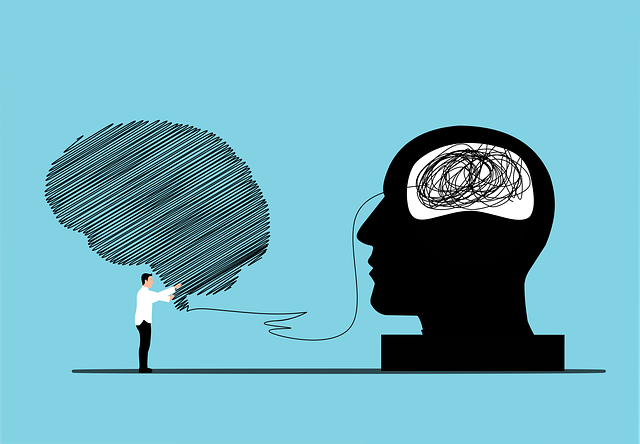Cognitive Behavioral Therapy (CBT) is a powerful, evidence-based psychotherapy approach that targets negative thought patterns and behaviors, empowering individuals to take control of their emotional well-being. Delivered by certified CBT therapists with rigorous training and ongoing professional development, this structured method focuses on collaboration, goal-setting, and learning practical coping strategies. Effective for depression, anxiety, PTSD, and eating disorders, CBT offers hope and transformative potential through techniques like cognitive restructuring and behavioral activation. To find the ideal CBT therapist, consider recommendations, credentials, experience, specialization, and personal preferences. With its proven success stories and integration into mainstream mental health practices, CBT therapy remains a top choice for managing various mental health challenges.
“Uncover the transformative power of Cognitive Behavioral Therapy (CBT) through this comprehensive guide. We explore how CBT-certified psychotherapists play a pivotal role in mental health treatment, offering effective strategies for managing diverse conditions. From understanding the core principles of CBT to uncovering its benefits and common techniques, this article equips readers with knowledge. Learn about the qualifications required to become a CBT therapist and discover how to find the right certified practitioner. Explore real-life success stories, highlighting CBT’s impact on various individuals.”
Understanding CBT Therapy: A Brief Overview

Cognitive Behavioral Therapy (CBT) is a highly effective form of psychotherapy that focuses on identifying and changing negative thought patterns and behaviors. It’s a structured approach that empowers individuals to take control of their emotional well-being by understanding the connection between thoughts, feelings, and actions. CBT therapy encourages active participation, where clients work collaboratively with therapists to set goals and learn coping strategies.
This therapeutic method is based on the idea that our thoughts influence our emotions and behaviors. By challenging and modifying unhelpful cognitive processes, individuals can experience significant improvements in their mental health. CBT has been extensively researched and proven successful in treating various conditions, including depression, anxiety disorders, post-traumatic stress disorder (PTSD), and eating disorders. Its practicality and effectiveness make it a preferred choice for many psychotherapists and clients alike.
The Role of CBT Certified Psychotherapists

CBT certified psychotherapists play a pivotal role in modern mental health care, offering evidence-based treatment for a wide range of psychological disorders. CBT, or Cognitive Behavioral Therapy, is a therapeutic approach that focuses on identifying and changing negative thought patterns and behaviors. These trained professionals help individuals navigate through complex emotions and challenging life situations by empowering them with practical coping strategies.
Through rigorous training and certification, CBT therapists are equipped to deliver effective interventions tailored to each client’s unique needs. They facilitate a collaborative process where patients actively participate in understanding and modifying their thoughts and actions. By promoting self-awareness and skill development, these psychotherapists enable individuals to manage stress, anxiety, depression, and other common mental health issues, ultimately fostering improved well-being and enhanced quality of life.
Qualifications and Training for CBT Therapists

CBT certified psychotherapists undergo extensive training and qualifications to become experts in Cognitive Behavioral Therapy (CBT). This involves completing a master’s degree in a relevant field, such as psychology or counseling, which includes specialized coursework in CBT techniques. After graduation, therapists must gain practical experience through internships or supervised clinical work, allowing them to apply their knowledge under professional guidance.
Certification is a key milestone, achieved by passing rigorous exams administered by recognized bodies. These certifications ensure that therapists have met the industry standards for proficiency in CBT. Ongoing professional development is also crucial, as it keeps therapists up-to-date with the latest research and techniques within the field of CBT therapy.
Benefits of CBT for Mental Health Treatment

Cognitive Behavioral Therapy (CBT) has emerged as a highly effective approach to mental health treatment, offering individuals valuable tools for managing and improving their well-being. This evidence-based therapy focuses on identifying and changing negative thought patterns and behaviors that contribute to various mental health disorders. One of the key advantages of CBT is its ability to empower individuals with coping strategies they can use throughout their lives. By learning to challenge distorted thinking and replace it with more realistic and adaptive thoughts, people can break free from cycles of depression, anxiety, or other common mental health issues.
Moreover, CBT provides a structured framework that enables psychotherapists to work collaboratively with clients to set specific goals and track progress. This goal-oriented approach ensures that the treatment remains focused and tailored to each person’s unique needs. With its proven efficacy and practical techniques, CBT continues to be a preferred method for many certified psychotherapists, offering hope and transformative potential to those seeking to overcome mental health challenges.
Common Techniques Used by CBT Psychotherapists

CBT psychotherapists employ a range of effective techniques tailored to help individuals challenge and change unhelpful thought patterns and behaviors. One common approach is cognitive restructuring, where therapists guide clients to identify and modify negative or distorted thinking. This involves questioning the validity of these thoughts and replacing them with more realistic and balanced alternatives. For instance, helping someone struggling with anxiety recognize and challenge catastrophic thinking can significantly reduce their overall anxiety levels.
Another key technique is behavioral activation, focusing on encouraging individuals to engage in activities that are often avoided due to negative thoughts or emotions. By gradually facing feared situations and practicing new coping strategies, clients learn to manage their symptoms more effectively. This process not only enhances overall well-being but also provides a sense of accomplishment, fostering a positive feedback loop that reinforces healthy behaviors.
Finding and Choosing a CBT Certified Therapist

Finding the right therapist is a crucial step in your journey towards mental well-being. When seeking a CBT (Cognitive Behavioral Therapy) certified psychotherapist, it’s essential to consider several factors. Start by researching and asking for recommendations from trusted sources. Many people find their therapists through word of mouth or online directories dedicated to mental health services.
Next, check the therapist’s credentials and experience. Ensure they have the desired CBT certification from a recognized institution. Look into their areas of specialization and whether they align with your specific needs. Some therapists might specialize in treating anxiety disorders, depression, or other common mental health issues. Additionally, consider factors like location, availability, and the therapeutic approach they employ to ensure it resonates with your preferences and treatment goals.
Success Stories: Real-Life Impact of CBT Therapy

CBT, or Cognitive Behavioral Therapy, has an impressive track record in helping individuals overcome a wide range of mental health challenges. Success stories abound, showcasing its real-life impact and effectiveness. For example, many clients have reported significant improvements in managing anxiety disorders, depression, post-traumatic stress disorder (PTSD), and even eating disorders. By identifying and challenging negative thought patterns, CBT empowers people to develop healthier coping mechanisms and improve their overall well-being.
These success stories highlight the versatility of CBT therapy. It offers a structured approach that focuses on the present and future, helping individuals gain insights into how their thoughts, feelings, and behaviors are interconnected. As a result, clients often experience increased self-awareness, improved mood regulation, and enhanced problem-solving skills. The tangible benefits of CBT have led many to advocate for its integration into mainstream mental health practices, underscoring its potential to transform lives and foster resilience in the face of adversity.
